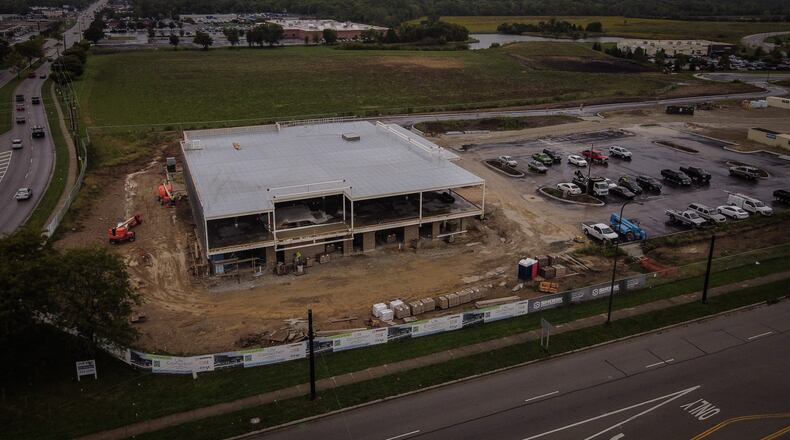Credit: STAFF
Credit: STAFF
The proposals come as a Cleveland-based developer is designing plans for a large-scale residential development on 28 acres in MVRP.
The changes would be notable departures of how those properties — both now business hubs home to thousands of jobs combined — were initially developed.
But the changes make sense in certain cases, especially on land not conducive to business park development, said Kettering Planning and Development Director Tom Robillard.
“We don’t want to open up business park zoning to allow for restaurants or multi-family housing in all areas…because that’s not the purpose of the business park zoning,” he said.
“But in certain areas it is appropriate — or may be appropriate — on large tracts,” Robillard added.
One large property being considered for such use is at the corner of Research Park Boulevard and County Line Road near the Beavercreek corporation line. That’s where Cleveland-based Industrial Commercial Properties is looking to build an apartment complex.
The project would involve a residential complex in the range of 300 units, said Dean Miller, an executive with ICP, which owns about 50 acres at the research park.
Miller told the Dayton Daily News this week ICP is “still interested in pursuing the project” at MVRP.
“We have a couple of potential partners” on the project who “will become more seriously engaged with once we become more comfortable and we’ve confirmed the use is allowed.”
Proposed changes in Kettering’s land use would allow for “professional office and research facilities with mixed use support retail and high density residential for a broader mix of uses,” city records show.
Amendments to the city’s zoning code would permit certain “residential multi-unit” uses and restaurants “as conditionally permitted uses in the BP-business park district,” documents state.
Both issues were approved 5-0 by the Kettering Planning Commission Monday night and are set to go to city council next month, officials said.
The companion measures could take months to be approved and implemented, Kettering officials said. Any plans falling under conditional uses would require a similar approval process, said Amy Schrimpf, the city’s economic development manager.
Any MVRP proposals may involve the association overseeing its 1,250 acres straddling Beavercreek and Kettering, City Manager Mark Schwieterman.
Until the 1990s, the Kettering Business Park land housed the Defense Electronics Supply Center, a 165-acre government installation.
Opened in the 1940s, at its peak it housed a few thousand military-related jobs, but was closed in Base Realignment and Closure moves and later acquired by the city.
While Kettering Business Park lost about 2,000 jobs when Synchrony Financial moved out last year, today it houses operations for Alternate Solutions Health Network, Amazon, Kettering Health and Kettering Municipal Court.
Miami Valley Research Park was founded in the early 1980s as a non-profit, university-related research park affiliated with academic institutions that included Sinclair Community College, the University of Dayton and Wright State University, records show.
The city of Kettering bought about 300 acres in 2017 in a move that Mayor Don Patterson said helped give “us control over our own destiny.”
While continuing to be the home of mainstays Kodak and Reynolds & Reynolds, in recent years it has attracted Community Tissue Services and Life Connection of Ohio, both of which are expanding operations and jobs.
Since buying MVRP land, Kettering has sold or has plans to sell more than 50 acres, including an option involving ICP, Schwieterman said.
“Obviously, this a very long-term transaction,” he told the Dayton Daily News last month. “And I think we’re way ahead of schedule at this point.
“We’ve only owned the land for a couple of years and we’ve already had success in selling to new businesses, but existing businesses,” Schwieterman added. “So I think it’s gone very well.”
About the Author


